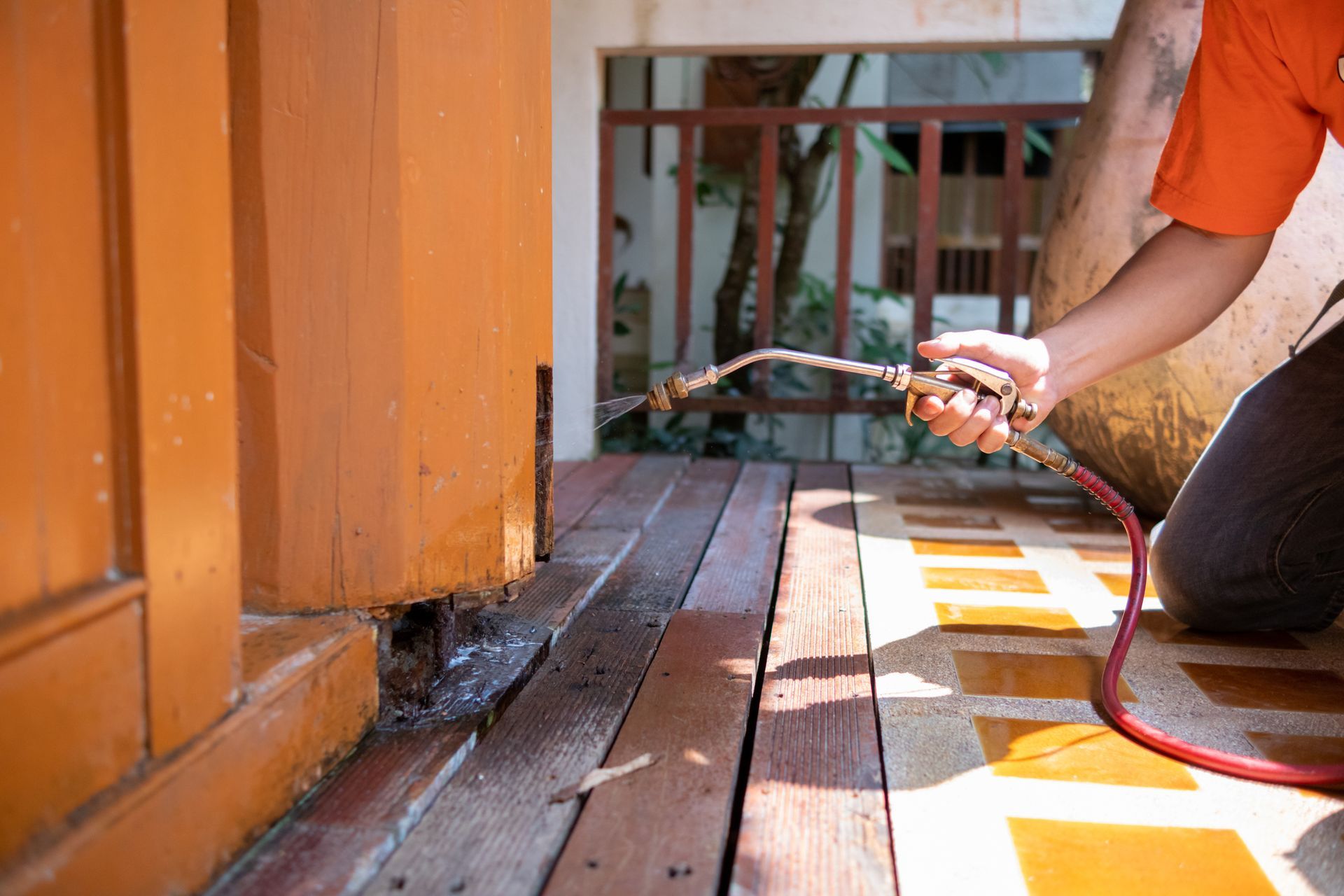Termite Treatment: Seasonal Patterns & When to Schedule It
If you’re a homeowner in Gippsland, understanding termite activity through the seasons is crucial to protecting your property from costly damage. At HomeGuard Pest Control, termite treatment is tailored to these seasonal changes, helping you anticipate the best times for inspections and treatments. In this article, we’ll explore how termite behaviour fluctuates throughout the year, the signs to look for to catch infestations early, and why scheduling with a termite specialist at the right time can save your home from serious harm.
Understanding Termite Behaviour Throughout Gippsland’s Seasons
Termite activity in Gippsland is closely linked to the region’s seasonal climate variations. As temperatures and moisture levels change, so too does termite behaviour, influencing the effectiveness and timing of termite treatment.
- Spring (September to November): This is the peak season for termite swarming in Gippsland. The warmer temperatures combined with increased humidity encourage termite colonies to produce winged reproductives, known as swarmers, which leave the colony to start new nests. Early termite treatment during spring can intercept these reproductive termites before a fresh infestation starts.
- Summer (December to February): Termites remain very active in summer, seeking moisture and food. Gippsland’s warmer weather accelerates their feeding activity, increasing the risk of damage to wooden structures. Scheduling termite treatment during summer helps to kerb active colonies and limit structural harm.
- Autumn (March to May): As temperatures cool down and conditions become drier, termite activity typically slows, but they still pose a threat, especially in damp or shaded areas near homes. Autumn inspections by a termite specialist in Gippsland can uncover hidden infestations that can be treated before winter.
- Winter (June to August): Termites tend to go dormant or retreat deeper underground when temperatures drop. This makes them harder to detect but not necessarily less dangerous, as damage may continue unnoticed. Even in winter, scheduling termite treatment in Gippsland can serve as a preventive measure.
Signs to Watch for Termites in Gippsland Throughout the Year
Recognising signs of termite activity early is essential for timely termite treatment in Gippsland. Homeowners should be vigilant throughout the year, but especially during spring and summer when activity peaks.
- Mud Tubes: One of the most common indicators, these protective tunnels run along walls and foundations. They help termites travel between their nests and food sources.
- Discarded Wings: After swarming, termites shed their wings near windowsills or door frames—an early warning sign of colony activity nearby.
- Wood Damage: Hollow-sounding wood or blistered paint can signal internal termite damage.
- Frass (Termite Droppings): Some species leave behind small piles of faecal pellets near entry points.
- Noises:
Occasionally, faint clicking or rustling sounds may be heard inside walls caused by termite activity.
By monitoring for these signs across Gippsland’s changing seasons, you can contact a termite specialist swiftly for inspection and treatment.
Why Scheduling Termite Treatment With Specialists Matters
Partnering with a termite specialist in Gippsland, such as HomeGuard Pest Control, is key to effectively managing termite risks throughout the year. Experts understand the seasonal nuances of termite behaviour and use this knowledge to recommend the most effective timing for treatments.
Seasonal scheduling provides several benefits:
- Optimised Treatment Efficacy: Targeting termites during their most active periods—typically spring and summer—maximises the effectiveness of treatments.
- Early Detection: Routine inspections timed with seasonal activity can catch infestations before they escalate.
- Tailored Prevention Plans: Specialists can advise on ongoing maintenance and prevention based on the local environment and season.
- Peace of Mind: Knowing that your property is protected year-round from this destructive pest.
Preventive Tips to Reduce Termite Damage Year-Round in Gippsland
While professional termite treatment is essential, homeowners can take proactive steps to reduce the likelihood of infestations:
- Remove Wood Debris: Clear away fallen branches, firewood, and mulch that can harbour termites near your home.
- Maintain Proper Drainage: Prevent moisture build-up around your home’s foundation by repairing leaks and ensuring gutters work effectively.
- Ventilate Crawl Spaces: Allow air circulation under your home to reduce damp conditions favoured by termites.
- Monitor Wooden Structures: Regularly inspect decks, fences, and wooden furniture for signs of termite damage.
- Seal Entry Points:
Ensure gaps around doors, windows, and plumbing are sealed to limit termite access.
Implementing these household measures in conjunction with scheduled termite treatment in Gippsland by a trusted termite specialist can significantly reduce termite risk. Regular maintenance and timely inspections ensure your home remains protected year-round from costly termite damage.

Schedule Your Termite Treatment Today
Termite damage can escalate quickly if left unchecked, especially given the seasonal behavioural patterns of termites in Gippsland. Don’t wait until you spot visible signs of infestation—stay ahead by scheduling termite treatment at the right times of the year with a termite specialist. HomeGuard Pest Control offers expert inspections and personalised treatment plans designed to protect your home through Gippsland’s changing seasons. Call today to book your appointment and safeguard your property from these destructive pests.

